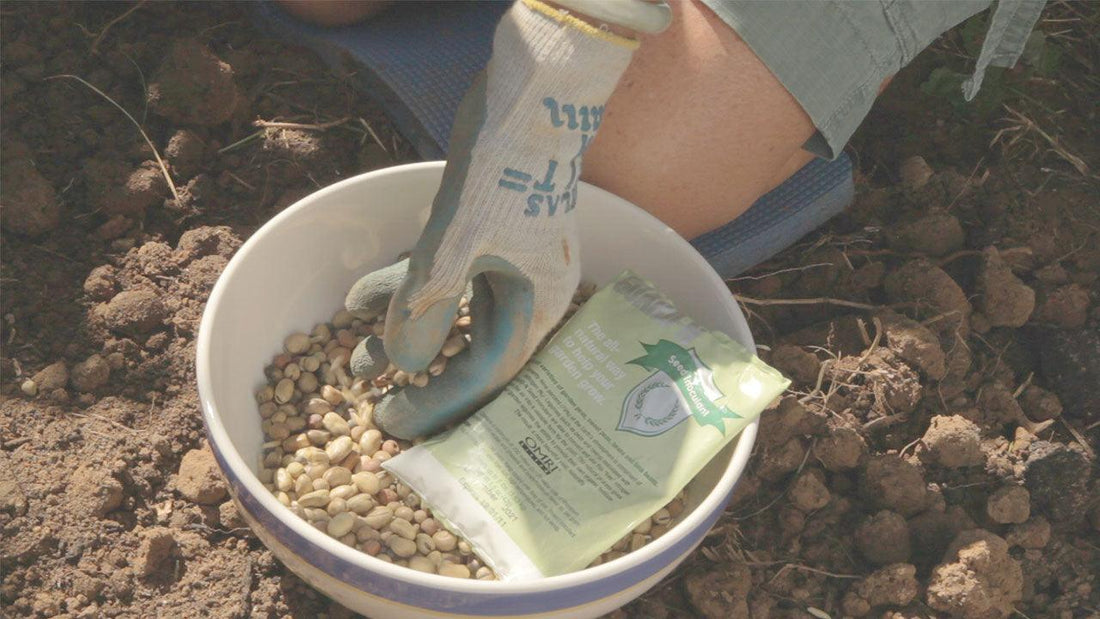Why is Nitrogen Important?
In our video on cover crops, and in other blog posts, we emphasize the importance of legume cover crops for nitrogen fixation. But why is nitrogen so critical for your soil and plants?
Available nitrogen in the soil is essential for green leaves, new roots, and shoots. Without sufficient nitrogen, plants struggle to grow and develop properly.
How Do Legumes Fix Nitrogen in the Soil?
Legumes work in harmony with specialized bacteria that live on their roots. These bacteria, called Rhizobia spp., take nitrogen (N2) from the air and “fix” or convert it into ammonium ions (NH4+), which plants can absorb. This process occurs in pink root nodules, where the bacteria live.
Plants cannot directly absorb nitrogen from the air, so the bacteria play a crucial role in making this essential nutrient available to them. The conversion process involves adding hydrogen to nitrogen, which is what we refer to as "nitrogen fixation."
For plants other than legumes, different types of bacteria work to fix nitrogen by adding oxygen instead of hydrogen. This shows how diverse and critical soil microbes are for maintaining healthy soil.
Why Use Inoculants for Legume Seeds?
To ensure successful nitrogen fixation, we recommend using seed inoculants with raw legume cover crop seeds. While most soils have some rhizobacteria, the quantity is often insufficient to support robust nitrogen fixation.
Many legume cover crop seeds are pre-coated with inoculants ("rhizocoated" or "nitrocoated"), but for seeds that aren’t pre-treated, adding inoculants just before planting can make a big difference in your soil's nitrogen levels.
Seed Inoculants for Nitrogen Fixing
The Science Behind Nitrogen Fixation
Nitrogen fixation is a natural process where nitrogen gas from the atmosphere is converted into ammonia or related nitrogenous compounds. This transformation is critical for plant nutrition and soil health.
Legume plants provide carbohydrates to the bacteria in exchange for nitrogen, creating a mutually beneficial (symbiotic) relationship. This process not only benefits the legumes but also enriches the surrounding soil, making nitrogen available for other plants as well.
Building Healthy Soil
Healthy soil is the foundation of a productive garden, and legumes play an important role in improving soil fertility. By incorporating legume cover crops and using seed inoculants, you can enhance your soil’s nutrient content and reduce the need for synthetic fertilizers.
Building soil health with nitrogen-fixing legumes and inoculants is a simple and effective way to improve your garden's productivity and sustainability.


